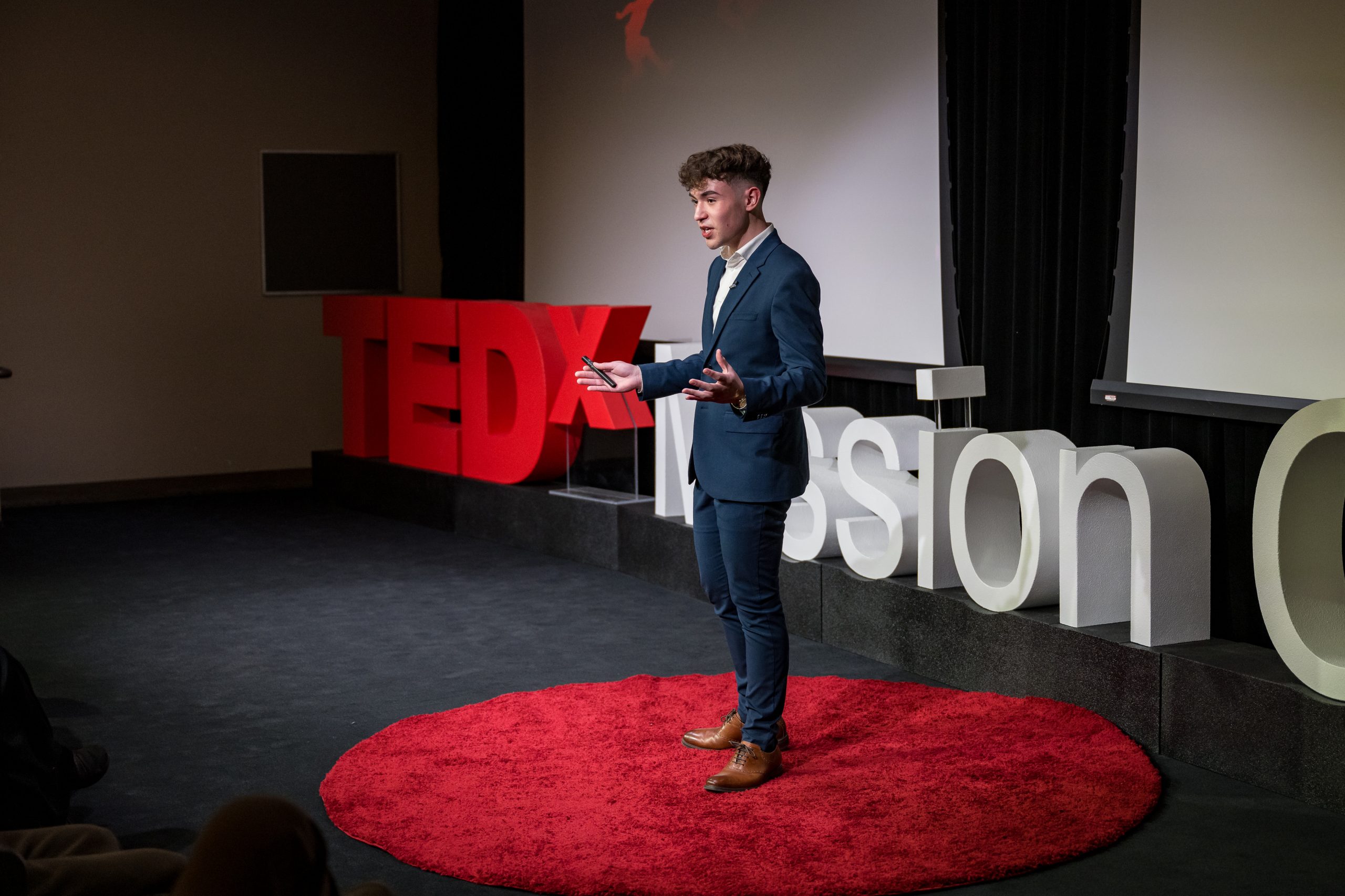

Luis Valdes, an 18-year-old student at Mission Early College High School and Mission College, struggled with obesity. In 2022, he weighed 300 pounds.
Within two years, by identifying areas for improvement, he halved his weight.
“The best part is that I haven’t gained it back,” Valdes said.
At a TEDx conference at Mission College this year, Valdes described his transformation.
“I had the privilege of sharing my journey of overcoming significant challenges, particularly regarding my weight loss journey,” he said. “I spoke about my transformation, shedding nearly 150 pounds from my previous weight of almost 300 pounds.”
As a psychology student, Valdes used psychological principles to transform himself. He realized that any improvement to his body must first come from improving his brain.
To achieve his dreams, Valdes analogized his goal to a road trip.
“In my TEDx Talk, I utilized a metaphorical road trip structure, drawing on Maslow’s Hierarchy of Needs to guide individuals through weight loss and provide insights based on my successful journey,” the Mission Early College High School student said.
When we take a road trip, we check for gas, tire pressure, and other things before starting our journey.
Similarly, according to Valdes, we must reestablish our fundamentals for weight loss and see where we need to improve.
Valdes recognized three areas of living critical to losing weight – food, movement and sleep. Once the bad habits that led to his weight gain were recognized, he replaced them with good habits. Through this, he was able to transform his body.
With over a third of Americans suffering from obesity, weight loss is a relevant and widespread issue in this country.
“I felt compelled to share my story, recognizing the potential to impact others facing similar struggles,” Valdes said.
“Drawing on my experiences and the universality of weight loss struggles, I aimed to offer practical insights and critical tools that others could use to lose weight,” Valdes continued.
Whether in weight loss or education or family, many people set goals without setting a practical plan to accomplish it. Many people, for instance, think about how appealing it would be to have a name on our office doors prefixed by “Doctor.”
But most of us give no thought about the time and effort reaching such a goal and settling into a new habit – “changing one’s normal,” as Valdes calls it – requires.
“For anyone facing challenges losing weight, remember that actions speak louder than words,” Valdes said. “While ‘move more, eat less’ seems simple, the journey often requires humanized guidance.”
Fortunately, while it may not be easy to lose weight, Valdes says, you can certainly make it easier.
“It’s easy to talk about how you plan on doing something great with your life, but many of us will spend years putting off the first 10 minutes,” he said. “I encourage individuals to document their experiences to understand where they started and who they became.
“Once you help yourself, you can start helping others, and you should try to help others because this is where true fulfillment comes from,” Valdes continued.
As with most important things, shedding the pounds requires hard work and patience.
“Character is built through adversity; the constant pursuit of comfort and ease in our lives keeps us in the same place we don’t want to be in. So, embracing discomfort to improve our lives is the purest form of self-love because it sacrifices the present for a better future,” Valdes said.
“My weight loss journey was transformative, reshaping my life in unexpected ways and ultimately changing the trajectory of my life.”
Related Posts:
Mission Early College High School Earns State Recognition
Santa Clara Unified Welcomes New Student Senate
The Bay Area Air District (BAAD) has fined subsidiaries of Kinder Morgan, Inc. $226,990 for…
After her book discussion group on March 25, Santa Clara resident Carol Buchser stopped off…
Bay Area artist Nathan Oliveira (1928-2010) described himself as an abstract artist whose work had…
The California Highway Patrol's so-called "surge" operations in Oakland have netted nearly 400 arrests so…
James Williams wasn’t just Santa Clara’s first African American citizen and one of the first…
Can you spell deja vu? The battle over the best way to teach children how…